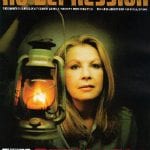Duane Jarvis – Let’s make some music; I’m not looking at my watch
When he was growing up, Duane Jarvis’ family lived in an assortment of places up and down the West Coast — the Bay Area, Los Angeles, Seattle, Portland. His professional music career began in Portland, just after he graduated from high school. He first played in a blues band and then a rootsy pop band, each outfit cranking out four sets a night. (“That was kind of my university,” he says.)
After moving from Portland to Los Angeles in the mid-’80s, Jarvis toured as a guitarist for a Who’s Who of roots-and-country-leaning artists, including Dwight Yoakam, John Prine, Rosie Flores, and Lucinda Williams. (And then there’s the resume item that earns the most quizzical looks: playing rhythm guitar for Australian rock band the Divinyls, of “I Touch Myself” fame.)
When Jarvis started leading his own band, D.J.’s Front Porch, listeners could hear the echoes of all of the people and experiences that helped to shape him musically. They also heard some damn fine songs.
Among the listeners was Peter Jesperson. After hearing “House Of Stone” on a homegrown EP Jarvis was circulating, Jesperson called to see if he wanted to make a record. Their conversation led to the release of D.J.’s Front Porch on Jesperson’s Medium Cool Records in 1994. That year he relocated again, to Nashville. Jarvis’ second album, Far From Perfect, came out in 1998 and was followed two years later by the aptly titled, part-live collection Combo Platter.
His fourth, and most varied and accomplished album to date, Certified Miracle, was put out by the German label Blue Buffalo last fall before being released in the States on Slewfoot Records in late June.
Lucinda Williams’ note on the back of Far From Perfect sums up the work of Duane Jarvis nicely: “DJ’s music reflects a pop sensibility backed by a healthy respect for country & blues roots.”
I. IF THERE’S SOMETHING I WANT TO DO, I’LL USUALLY GO AFTER IT
NO DEPRESSION: You moved to Los Angeles in 1984 right about the time that a roots-rock and country-rock revival of sorts was kicking in. Were you already heading in that direction musically, or was the scene there a big influence?
DUANE JARVIS: Well, it was because a lot of those bands were coming through: Rank And File, the Blasters, Los Lobos, I know I’m forgetting somebody. Then I kept reading about Lone Justice, and those bands would come through Portland, and I’d go see them every time. And I was totally electrified by it, and I thought, this is really what I want to do….The Plimsouls, that’s it [he remembers who he’d forgotten]. But really what I was doing with the Odds [his band in Portland] was not that far removed in a way because we were playing really pretty raw, rootsy music. Our little scene was starting to dry up a little bit, so I thought, man, I’m just going to go starve in L.A.
ND: What do you remember most about those early days in L.A. as a hungry musician?
DJ: I remember how hard the first year was. I remember answering all these ads. I must have gone to 10 or 20 different songwriters’ houses or musicians’ houses. They’d have these ads for a band, and I’d go over there and it would always be a nightmare. I’d gone from having a pretty cool little scene — and it was little, but at least we had something going — to just knowing nobody. It was hard.
The breakthrough was meeting Marvin Etzioni in a music store on Santa Monica Boulevard. He was in Lone Justice at the time, and I’d been going to see them all the time anyway. I just walked right up to him, and I said, “Hey, what’s going on? I love your band.” In some ways, I’m kind of quiet, but if there’s something I want to do, I’ll usually go after it. I just went up to him and started talking to him. And he said, “Well, I’m actually putting my own band together and leaving Lone Justice. I’m looking for a guitar player.” I said, “Maybe I can be your guitar player.” [Laughs] I remember I didn’t miss a beat — it was my opportunity.
ND: So you played with Marvin, and you toured in the bands of some big, big names: John Prine, Dwight Yoakam, and Lucinda Williams to name just three. I heard you tell a story once about how it was for you to be onstage with John Prine…
DJ: Honestly, I’d look down at my guitar every night, and then look over center stage, and there’s John. I’d look back down and go, “I’m onstage with John Prine.” It just blew my mind every night. He was one of my heroes since those first records.




